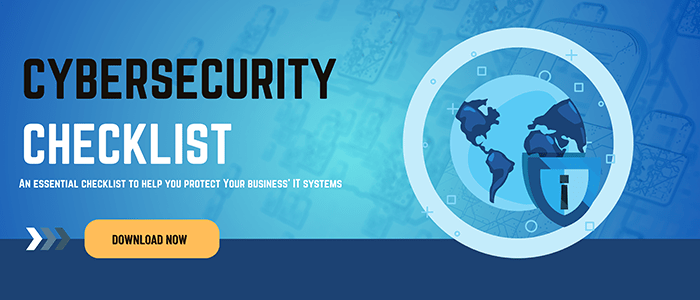IT Planning and Budgeting

Summary: Dave and Steve from PCG talk about IT Budgeting, and how to prepare for the end of the year costs, avoid unexpected costs, and how to get tax savings on IT-related expenses.
Mike: And it is Tech Tuesday, all powered today by Portsmouth Computer Group with convenient offices in Manchester and Portland, Maine, and also Portsmouth and Dover. And the boys are here from PCGIT.com. We’ve got Steve, and we’ve got Dave back in the office today. Good to see you both. Welcome, everybody.
Dave Hodgdon: Top of the morning, Tech Tuesday.
Steve Ripper: Good morning, Mike.
Mike: It’s Tech Tuesday, everybody. Tech Tuesday, yeah. How is everybody today? You have a good weekend? Have a good weekend?
Dave: Great weekend.
Steve: Yeah, it was pretty good.
Mike: Enjoying the fall so far?
Steve: Yeah, like yesterday was crazy. It was like 75. What is going on?
Mike: I know. It was just weird, wasn’t it? We’ll take those days, right? We’ll take those days. Good to have you with us and today we’re going to talk a little bit about end of year stuff, I guess.
Steve: The boring stuff, Mike, the money. We’re going to talk about the money.
Mike: Budgeting for your IT departments, is that it?
Steve: The boring, the money, no one likes to talk about the money, do they Dave?
Dave: I like talking about it. I think every business, Mike, needs a roadmap. They don’t like the unexpected costs.
How to Prepare for End of Year Costs
Mike: That’s what we’ve been talking about, unexpected costs and trying to keep ahead of the game here. That’s where you guys come in. So let’s talk about how to prepare for the end of the year costs, tax savings in the 2020 IT budget. So what type of things are on the IT budget?
Steve: So the important thing is, first of all, have one, right? Sometimes you talk about what’s on the budget, you start talking to customers, they don’t even have one.
Mike: They don’t have one?
Steve: No, they don’t have one. They don’t think in terms of that, so they’re doing it reactionary.
Dave: Ad hoc.
Steve: They’re doing it just, “hey, there’s a problem over there, do I need to do something about it?”
Dave: Right.
Steve: And that’s fine, you can get by with that, but what we’re talking about is saying, talking with your IT person and identifying what the needs are. Do we have these problems, right? So do we have three machines over there that are getting older? Do we have five machines that are fine? Do we need to get more stuff in the network? Write them down. Write the things down and prioritize it. Say these are things that I got to have right away, these are things that can wait six months, these are things, so that when the end of the year comes, that conversation’s easier.
That person, you can go and say…you can meet with Dave and then say, listen, this is the list we’ve been working off all year long and we need these, these are the things we got to have. We might have some extra money in the budget. Did you use your IT budget? Do you have a budget? Those types of things.
Dave: And we find companies, 30, 40, 50 people, Mike, without a budget it’s tough. And the average spend for a company of that size is probably 15 to 25,000 a year.
Mike: Really? Wow.
Dave: But if it’s not planned, it could be a lot more, because you figure the average life expectancy of a PC, moving your stuff to the cloud, and your IT expenses. You’ve got your software maintenance from your vendor, you’ve got your phone, internet bill, you’ve got your copier bill, you’ve got computer training in there. There’s many things that you just don’t want coming out of the blue. And I really find it very helpful if the company knows. At least they’re being upfront with us, let’s plan for this. And if you’re being proactive, you have less problems.
Mike: Yeah, I would imagine you also have to plan big time not only to put your budget together, but for updates on software, replacing equipment, like you say, they have a shelf life, right? They have a shelf life.
Windows 7 End-of-Life
Dave: Well look what’s going on with Windows 7 right now. So we know we’re down to our final three months. It’s crazy out there right now with this replacement.
Mike: Crazy in what way? What do you mean?
Dave: Just too many people waiting until the last minute, and we’re just going through more PCs in the history …
Mike: So the major plot, you’re changing things from 7 to 10.
Dave: Windows 7 to 10 through our whole customer platform. A lot of people are waiting until the last minute, and it’s tough. Maybe they don’t want to do the spend because the PC’s working. That’s hard for them. It’s kind of like my car is working, why replace it?
Mike: Why replace it, right. Yeah. So what’s going to happen in January now? What’s going to happen in January? Windows 7, so Microsoft is not going to support anything, is that the deal?
Steve: Yeah, they’re going to stop the updates.
Mike: So your computers and systems will be vulnerable.
Steve: Yeah. So windows 7 isn’t going to just stop working. I get that question all the time. Is it just going to like go the old TV sets? No, it’s not going to go off, but you’re going to see less and less support. And the big thing you’re going to notice is that the other companies that might deal with Windows 7 are going to stop their support, and that’s where your problems are going to be.
When I say the other companies, I mean like HP making printers, right? Or a camera reader, when you go to connect your camera.
Mike: You won’t be able to get the update.
Steve: Exactly. There’ll be no new drivers for Windows 7. You’ll buy a new camera, you’ll go to connect your camera up to the PC. Say it’ll be June or May of next year, and when you go to get drivers to connect your thing to Windows 7 that company, Canon, won’t have it. HP won’t have a printer driver. So immediately you’re going to start to run into just trying to keep it running. We saw the same thing with Windows XP. We’re going to see the same thing with Windows 7. After a certain amount of time, once Microsoft says it’s okay, everybody else thinks it’s okay and then you’re going to not be able to run it anymore.
Mike: Are we talking about the first of the year for this or what …
Dave: January 14th, [2020].
Mike: January 14th is the date that Microsoft stops all support.
Dave: Support for Windows 7, as well as two other biggies, which are…a major player right now is the Server 2008, which a lot of companies are still running, and also their a world famous Small Business Server 2011 is end of support. So part of the budgeting is not only just the budget, but what’s their stance on how they want technology to work for them? So part of the planning is what’s working, what’s not working, and look for areas where they want improvement. Like I see many places you speak to the individual, my machine’s slow. Well is the machine really slow or is the internet slow or is the switch slow? So you’ve got to ask some more questions.
And then today’s role of moving to the internet. Mike, your infrastructure’s more important than ever. Yet we see people running their switches that are 10, 15 years old. It’s like riding on Route One in traffic. You can’t have that.
Steve: Yeah. I’ve had customers come to me like end of December, hey, so there’s extra money in the budget. I have money in my IT budget, what do we need? And I’m like, first of all, I’ve been trying to have this…to the customer I’ll be like, I’m trying to have this conversation with you all year about what your needs are, where you’re at. And the second thing, you had an IT budget, that was also something you could have told me. You had one? There’s money in it? So that’s what we’re talking about, springing it on us, springing on yourself with 15 days to go in the year is not really…you should start to be talking about it now. And ideally you should have been talking about it in August.
What Should Be In Your IT Budget?
Mike: So I know you mentioned some of this in the beginning, but what are some of the things that should be on the budget that typically are not even thought of?
Steve: Yeah, so training.
Mike: Training.
Dave: Printers.
Mike: Printers, yeah.
Dave: Switches, the infrastructure, like your firewall a lot of times, you know PCs people get that, Mike, I always use the analogy of you’re kind of driving in a four cylinder car and this guy’s working every day at it and everything’s taking 10, 15 seconds every time he does something sees that little hourglass go, give that guy a V6 car. Give him a little bit better PC and he’s going to save 20 minutes a day. Then you do the math for payroll. That PC’s paid for itself within six months. Invest in your people.
I feel another thing people aren’t really thinking about is a lot of the aging servers is, “what are we going to do? Are we going to stay with a new server or are we going to go to the cloud?” That’s a big conversation you should be having.
Mike: And most people are going into the cloud, right?
Dave: It depends on the application, but the answer is we’ve seen a huge trend occur that we might’ve sold 30 servers last year, it’s like half that this year. It’s definitely changing.
Mike: Yeah, interesting.
Steve: Yeah. Couple of things that I see that companies, software upgrades, they don’t really plan for that. They don’t think of it as part of the budget. But if their software package, the thing that they use for their company, at the end of year if it needs an update or if it needs a new version, right? Accounting packages, a lot of times have to have an end of year update. That’s cost, right? That’s a time you have to schedule with us and we’re going to send you a bill for that work. So you need to kind of budget for that.
And then the other thing you see is are there opportunities based on the money that you’re spending, do you have opportunities for better security? There are better security packages out there that might fit you better. There’s some add-ons that you can do to things like putting software into the firewall so that it does better scanning. If you know what your budget looks like for the entire year, then you can make an informed decision with us on whether you have money to afford a better security package going forward in 2020.
If you don’t know what your costs are, if you haven’t been tracking your budget and know what it is, you don’t know whether that’s something that you can or should do. You look at it like, I don’t want my bill to go up. And then you say no to it and maybe that’s not the right decision.
Dave: I find, Mike, that if you have the action items that you need to work on, at least you prioritize them. Every small business we get it’s same thing, you just can’t get everything you want. It’s just in life. I just can’t buy another house when we get the other car. You have to look at each thing and what really is impacting my business. A lot of times it’s the switch. A lot of times it might be you got really horrible wireless in house and you got this hodgepodge of homegrown access points from Best Buy that really aren’t doing what they should be doing.
So that’s why we say we get all action items, and Steve talked about security, your wireless. These are things that we’re using…
Mike: Were you thinking wireless five years ago?
Dave: No. No, not at all. It’s on everything, your HVAC, your security, everything’s on the wireless.
Mike: Wireless, yeah.
Dave: And if you don’t have it set up right you’re going to have problems. You’re calling different vendors, but the budget needs to include security. We’ve been talking about that for a while. You’ve got to protect your assets, and with the whole cyber thing happening you need to think about what’s my risk if my business data is hacked.
Mike: That’s right. Absolutely. Speaking of hacked, we talked a lot about the ransomware, you’ve got a workshop coming up on Ransomware and the CryptoLocker. When’s that coming up again in October?
Dave: It’s coming up on Tuesday, October 22nd [2019] at the Portsmouth Country Club, 8:30 to 9:30. You can register online or give us a ring. Great content.
Mike: And what are you going to be going over that day? On that seminar that day on October 22.
Dave: I’ll let Steve answer that since he’s our trainer.
Steve: We’re going to be going over Ransomware. Things to look out for, what’s going to happen to you if you get it. That whole encryption of the files, what kind of things are going happen. We’re going to be talking about security concerns. We’ve talked a lot about it here, Mike, but we’re going to keep driving it home. It’s one of those subjects that you can’t talk about it enough. Feels like you can, but you can’t.
You have to talk about the passwords. You have to talk about the things to look out for. You have to talk about the ways they’re trying to trick us and hack us and get at our money. Ransomware, all the things that you should be doing to protect against it.
Mike: The more we’ve talked about Ransomware, the more I’m just amazed and blown away by how it’s happening and people are just having to pay up and get their information back.
Steve: Extortion is alive and well.
Mike: It’s kind of sad.
Steve: It’s alive and well.
Mike: Can’t knock this down, huh?
Dave: You remember two of the most important things we spoke about in the past, which you’ve recently got on yours, was multifactor authentication.
Mike: Right, yes.
Dave: That is a huge way to help eliminate it. And I’m speaking to more organizations now on what they have for cyber insurance. Please send me the policy. I’m finding out eight out of 10 times for coverage if something happened there, it’s like a minimal. It’s kind of like you get that thing in the mail, sign up for a $10 a month and get a life insurance policy.
Mike: Sure, yeah.
Dave: It’s really nothing. They’re giving you 100,000 for a Ransomware attack.
Mike: Wow.
Dave: It could cost millions.
Mike: That’s unbelievable, unbelievable.
Dave: You need to think about that.
Mike: All right, Dave and Steve joined us this morning. Tech Tuesday from the folks from Portsmouth Computer Group with convenient offices in Portsmouth and Dover. Now of course, open in Manchester and Portland, Maine. Check them out at PCGIT.com. Good to see you guys. We’ll talk to you next week.
Steve: Thank you, Mike.




